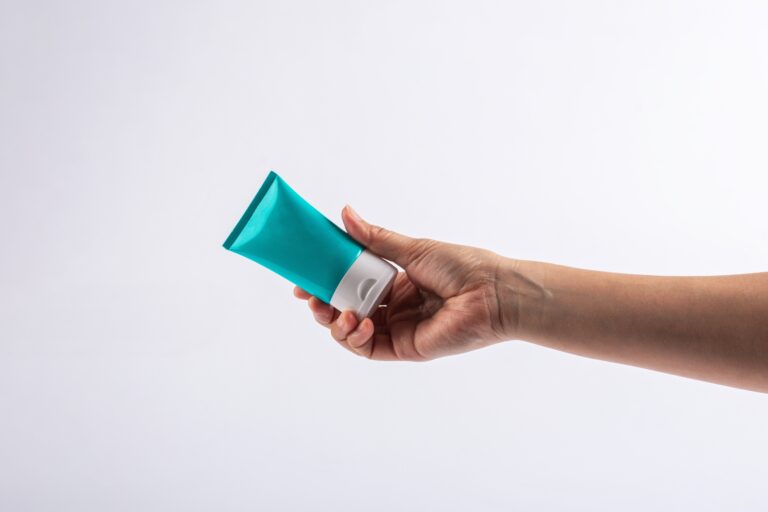Summer is synonymous with sunscreen, and it’s something that has been drilled into us since we were kids. Still, we’re all guilty of heading out ‘just for a little bit’ without applying sunblock, or perhaps even on purpose to achieve a sun-kissed glow. The reality is, any unprotected sun exposure can have harmful effects on our skin – ranging from wrinkles and uneven skin tone to cancer.
We consulted dermatologists Aaron Steen, MD of Dermatology Physicians of Connecticut and Tiffany Scharschmidt, MD of the University of California, San Francisco Scharschmidt Lab about all things summer skin safety, from the SPFs they recommend to advice for keeping kids protected. Read on for your skin safety cheat sheet, and remember to apply these principles throughout the year.
Sunscreen is talked about a lot during the summer; why is it more so than year-round, and why do we need to apply during every season?
AS: Sunscreen and other sun protective strategies like long sleeved clothing, shade seeking, etc., aim to reduce the amount of ultraviolet radiation that hits the skin. All sunlight contains ultraviolet radiation – regardless of the season – and cumulative UV radiation is the single greatest risk factor for the development of skin cancer. Beyond skin cancer though, UV radiation can also induce unwanted changes in skin like wrinkling, uneven skin tone, and non-cancerous skin growths. So, limiting exposure to UV throughout the year will help keep your skin looking young and reduce the risk of developing skin cancer.
TS: Sun protection gets extra discussion in summer months because often this is when the UV index (a measure of the amount of UV radiation) is highest. The number of hours of light are also greater, and we spend more time outdoors due to the warm weather. However, you can still get burned on a foggy or cloudy day (think about skiing) and cumulative UV exposure that doesn’t lead to sunburns or tans also contributes to our lifetime risk of skin cancer.
Why is a higher SPF better than SPF 15? Is lotion better/worse than spray on?
AS: Higher SPF affords a greater degree of protection against UV-induced sunburns and/or DNA damage (UVB causes most sunburns, but both UVA and UVB induce DNA damage. It is recommended to use “broad spectrum” sunscreens to protect against both UV types).
In general, higher SPF is more effective than low SPF in preventing UV radiation from reaching the skin, and I often recommend higher SPF (50 or higher) for several reasons. The first reason is that many people don’t use enough sunscreen. It is meant to go on thick, like a shot glass for your body and then another big dollop for the face alone. The second reason is that many people don’t reapply as frequently as they should (every two hours). So if you’re not using enough or not reapplying frequently, using a higher SPF sunscreen can help reduce the UV risk.
I also like to emphasize that clothing and shade are great strategies for sun protection because they don’t require maintenance throughout the day the same way sunscreen does.
The vehicle the sunscreen comes in (lotion vs spray, etc.) does not impact its effectiveness, though there are some concerns about what is contained in the propellant in the sprays, so I typically avoid those.
Any precautions or advice for kids? How do you differentiate a kid’s sun rash from a sunburn? When should parents be concerned versus treating with aloe, etc.?
AS: Remember that UV damage is cumulative, so sun damage accumulated early in life has a longer time to impact someone’s skin. Kids also tend not to think of sun safety on their own; kids will continue to play on the beach even after they have a pretty nasty sunburn going. At least, that is what I was like as a kid. So parents have to be thinking ahead on their kids’ behalf. Kids often hate having “stuff” like sunscreen put on them, but are often pretty ok with UPF rated (UPF is like SPF but for clothing) swim shirts or rashguards.
TS: When my kids are playing in the pool for many hours, one of the hardest things is trying to get them dry enough to reapply sunscreen. This is where rash guards and hats come in really handy. There are also sunsticks that can go on wet skin (i.e. on a kid literally still in the pool) that I find really handy for touch-ups on their cheeks where goggles often rub sunscreen off quickly. They are much more amenable to this than me asking them to get out and dry off for a new sunscreen lotion layer.
What’s the benefit of a mineral sunscreen (i.e. popular brands like Coola, Supergoop) versus non-mineral?
AS: Mineral sunscreens work by scattering UV rays, versus chemical sunscreens which absorb them. They are both effective ways to prevent sunburn and UV induced DNA damage. Within the past several years, there has been research that shows chemical sunscreens are absorbed through the skin at a higher rate than we originally thought possible. We do not think that the chemical sunscreens are harmful to the body after being absorbed, but we don’t know that for sure yet. So for that reason, I sometimes recommend mineral sunscreens. People with rosacea or acne might have sensitive skin, and they might find that mineral sunscreens are less irritating.
TS: I often don’t recommend one type over the other but discuss, as Aaron has, the way each works and considerations for either. While I used mineral sunscreens on my kids when they were under two years old, now I just use what they will let me put on them, which happen to be chemical sunscreens. So I wouldn’t feel too bad as a parent using one or the other. Many sunscreens also contain a combination of mineral and chemical agents – this often allows the physical/mineral blockers to be in lower concentration so your skin doesn’t appear quite so “chalky.”
Top piece of advice for taking care of your skin during the summer?
AS: Hats, rash guards/swim shirts, and beach umbrellas are great ways to protect yourself from the sun! It’s not just all about sunscreen. And remember that cloudy or cold days can still have meaningful amounts of UV radiation! So I keep my sunscreen next to my toothpaste to remind me to use it daily.
TS: Though not always possible (kids camps, work, etc.), try to prioritize sun activities outside the peak of the UV index hours (10am-4pm); i.e. walk the dog, go for a run, grab that game of tennis in the morning or evening.
For the expert’s spouse: When you’re always with a derm, is there anything you feel guilty about?
AS: My wife says that she feels guilty ignoring her dermatologist husband’s advice to use inexpensive, standard drug store type products – and splurging on expensive, heavily marketed skin care products instead.
TS: My husband says he feels guilty that he didn’t put on more sunscreen as a kid.


